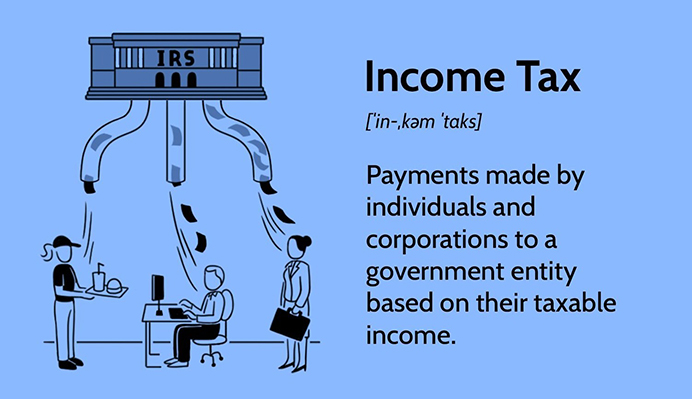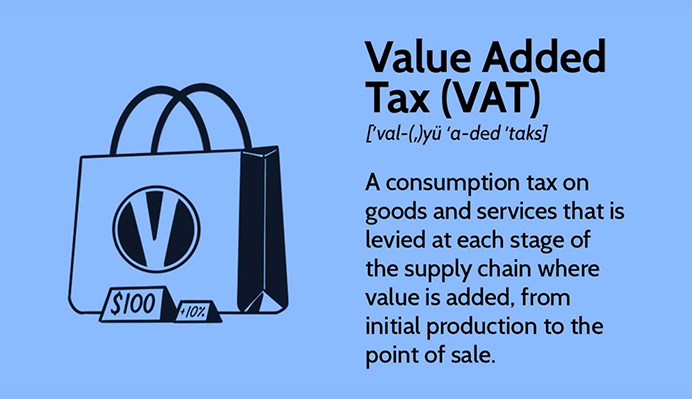The mode of business operation and shopping is being transformed by e-commerce. Nevertheless, these changes bring with them a tangle of intricate tax laws and obligations that online retailers have to work with.
The aim of this guide is to give a brief about the essential points that will be useful for beginners in e-commerce tax laws.
Understanding E-commerceTax Basics
What is E-commerce Taxation?
E-commerce taxation is the totality of taxes on online business firms operating in the digital marketplace. This includes electronic e-commerce taxes, which are analogous to the taxation policies implemented for physical shops. E-commerce taxation is based on sales tax and income tax, which are the major revenue taxes.
In most cases, sales tax refers to the levies collected on transactions whereby online dealers may have to charge and pay for sales of products to end consumers. Sales tax rules may be complex due to the variation between state laws and county/municipal jurisdictional restrictions. However, online businesses pay income tax on their profits. Usually, the business’s net income after deductible allowances is considered in calculating this tax, which is paid at both federal and state levels.
Apart from sales and income tax, there are some specific digital services taxes in certain areas targeting online services like streamlines, downloads of software, and digital advertisement. It is crucial, for the stability and legal adherence of an ecommerce business to consider taxation. When conducting business online taxation plays a key role.
Different Types of E-commerce Taxes
- Sales Tax: Sales tax, which is considered a consumption tax, has been levied upon most states and, in some instances, local authorities for the sales of goods/services. It refers to VAT, which is charged based on such a transaction where a customer buys either goods or services. Most online retailers find it difficult to follow several complicated tax rates and rules in different jurisdictions while collecting sales tax from their authorized agencies.
- Income Tax: Businesses pay an income tax for what they earn as profits or income. Corporate tax is imposed by both the government and state authorities taking into account the income along with tax relief claims like deductible expenses, credits and exemptions. The primary function of income tax in a business is its impact on the profitability and tax obligations of the company. This is necessary for accurate financial reporting and understanding the tax code as a way of reducing tax payments without compromising the legality stipulation.
- Digital Services Tax: Digital services tax is one of the recent measures levied on selected electronic services, e.g., streaming, software installation, and online advertisement. This is aimed at dealing with challenges that arise in the digital era, which are beyond some of the conventional tax regulations. More and more countries are introducing digital services taxes in an effort to recoup the proceeds from multinationals that offer such cross-border services. These will be the regulatory measures on digital service taxes aimed at ensuring that digital service providers contribute their fair share of tax revenue in the various host countries.
Nexus and its Significance
Nexus means something very crucial and sometimes confusing in terms of taxing e-commerce. Nexus is simply an expression that describes the ties or relationships between a business and the specific tax jurisdiction, such as state or locality. Once a nexus is created for an enterprise over a particular jurisdiction, the enterprise is liable for taxation laws and duties applicable in that region.

It may occur due to physical presence (having a store or a warehouse in a state), economic activity (achieving a significant amount of transactions and sales in a state), or it may be linked with activities of other state entities. Understanding nexus is important for online retailers as they need to know where they should collect and remit tax, report revenue, and also their compliance with other tax laws.
Nexus is important because it establishes the legal basis upon which the tax obligations of a remote business are determined. The reason for that is that there are diverse rules and taxes in different states or countries; therefore, companies should be cognizant of this in order to adhere perfectly to set legal obligations. Lack of attention to nexus could lead to huge fines or even audits.
With e-commerce normally crossing borders, it is not an easy exercise to appreciate how and what nexus is and how it adjusts with time. Consequently, online companies should be vigilant in overseeing and assessing their affairs such that they adhere to the Nexus prescriptions within the places where they operate so as to avert possible regulatory violations and taxation liabilities associated with non-compliance.
Sales Tax vs. Income Tax
Sales Tax
It should, however, be noted here that sales tax is a consumption charge generally imposed by the states in the United States. Just like any other vendor, online retailers are legally mandated and must always collect sales taxes from purchasers of taxable goods or services before remitting them to a given taxing authority of a specific state. Rates and rules on sales tax are not the same across different states and can sometimes differ substantially. There are some states with no sales taxes and others which have very high rates.
In addition, the complexity of the sales tax may also increase due to other tax jurisdictions at different levels and various additional taxes levied in these locations. Therefore, it is vital for the online retailer to understand the exact sales tax rules in the particular state of the nexus to avoid non-compliance.
It is very important that the online business maneuvers through this field correctly because failure to collect and remit sales tax properly can result in financial and legal implications such as penalties and interest accrued from unpaid taxes.
Income Tax
This type of tax includes income tax collected from a business’s profits or earnings. In the United States income tax is typically assessed at both state levels. The net income of a business is calculated by subtracting deductions and credits from its revenue. This calculation determines the amount of income tax that needs to be paid by the business.

Tax implications vary depending on business structures such as proprietorships, Limited Liability Companies (LLCs) or corporations. For instance a sole proprietor may need to report their business income on their tax return, which can significantly affect the financial well being of their enterprise. If you’re operating an LLC, there are specific LLC tax deductions you can claim, such as business expenses related to equipment, software, and office supplies, which can help reduce your taxable income.
Having an understanding of how taxes apply to your business structure is essential for effective strategic financial planning and ensuring compliance, with taxation laws. For LLCs specifically, proper filing of articles of organization with the state is a foundational step that impacts both business legitimacy and tax treatment.
It is crucial for businesses to maintain records and adhere to tax regulations in order to ensure they pay the correct amount of income tax and avoid any accusations of underreporting or non payment.
Tax Compliance for Online Retailers
1. Registering for Sales Tax Permits
Online retailers must hold licenses to collect and remit taxes in every state where they have created a nexus prior. Normally, nexus refers to either engaging in an activity of having a physical presence in a state, high sales volumes, or some other links specified by the taxation rules governing the state. The retailer should first contact their state’s taxing authority (Department of Revenue), where they will request to initiate the registration process.
However, the application processes differ in states, but you must provide basic business information as well as nexus-related facts about each state where you plan to locate your business. After approval of the application, the state issues a sales tax permit for the retailer to start collecting sales tax on taxable transactions in that jurisdiction. Online retailers should understand that they must comply with the particular registration rules, which vary by state where such retailers have nexus.
2. Collecting Sales Tax
Online retailers are expected to observe some critical steps in collecting a sales tax. To start with, one should establish which sale transactions fall within the realm of the state’s tax laws. The types of products that are subject, to taxation can vary from one state to another resulting in laws across regions.
Once you have identified the transactions that’re liable for taxation you will need to calculate the sales tax rate. This rate typically combines both state and local rates. It should be collected from customers when they make a purchase. In cases the sales tax is included in the price and appears as a separate line item on the customers invoice.
To streamline this process online retailers can integrate it into their e commerce platforms so that sales tax is automatically calculated and generated.
More importantly, one needs to know whether sales transactions are taxed or not for some specific types of sales and some specific buyers due to exemptions and special regulations. To remain compliant with state tax laws and carry out your duties as a retailer, it is important to comprehend the intricacies of collecting sales tax.
3. Filing Sales Tax Returns
Companies that collect and submit sales tax are required by law to file sales tax returns. This ensures compliance with state and local tax obligations as legal requirements for online retailers. The frequency of filing varies depending on the state ranging from quarterly, to monthly or even annually.
Timely and accurate filing is imperative to evade possible penalties and extra charges for improper or late filing. Failure to meet a deadline or making errors in your returns can lead to legal issues, audit scrutiny, and penalties. This is why companies need to be updated on the exact deadlines they should observe.
E-commerce Tax in Different Countries
1. International Considerations
International Considerations: There are varied, complex tax implications incurred by the selling of the products internationally. This includes understanding tax implications in each country in which a business operates, as well as navigating international treaties that govern the obligations of the country in terms of taxation. To operate in accordance with the law as well as avoid international tax conflicts, it is necessary to be updated on the different tax structures and compliance requirements of each country.
2. VAT in the European Union

The value-added tax in the EU is a complex set of regionally differentiated rules for consumption tax. Comprehending the rules of VAT for the EU becomes vital for businesses that seek to operate in the European space. Compliance is always based on good records, understanding the various VAT rates and exemptions, and registering for VAT in some EU member states. These regulations, hence, necessitate businesses to change as they look to make a mark in the European marketplace.
3. Tax Implications of Cross-Border Sales
There are likely to be extra taxes, duties, and regulations on imports and exports when selling products across borders. Hence, in the context of pricing products and logistics planning, businesses should consider such costs. Understanding the tax implications involved in cross-border sales is important as it would facilitate good cross-border trade and avoid any unforeseen costs.
Tax Software and Tools
1. Utilizing Tax Software
There are many tax software solutions that can be used to simplify the computation of taxes, paying, or reporting of taxes. These help simplify complex calculations and remain within the tax compliances automatically.
2. Automating Tax Compliance
There are many tax software solutions that can be used to simplify the computation of taxes, paying, or reporting of taxes. These help simplify complex calculations and remain within the tax compliances automatically.
Avoiding Common E-commerce Tax Pitfalls
1. Common Mistakes to Avoid
Common Mistakes to Avoid: Businesses must correctly identify tax mistakes like failing to collect and remit sales tax or not comprehending nexus requirements in order to evade issues with the law.
2. Penalties for Non-compliance
It is also an important thing to understand the possible penalties for non-compliance of e-commerce tax management. Non-compliance comes with penalties that take the form of fines, interest incurred, or even being liable to the law, thus showing why it is important to keep abreast with tax laws and maintain accurate records.
Evolving Tax Laws and Future Trends
1. Legislative Changes
Tax laws are constantly changing under new legislations that occur on both state and international levels as well as federal levels. It is important to remain updated with these and adjust business approaches continually to sustain complacency.
2. The Future of E-commerce Taxation
Such future trends in e-commerce taxation, as well as the global effort to create uniform tax measures, must also be explored. This means that, with the development of the digital economy, tax regulations are adjusted to tackle new problems and streams of revenue. Online businesses must understand this new trend in order to prepare for and handle tax reforms in the coming years.
Conclusion
Although e-commerce tax laws are complicated, they may be overcome by a business that has the requisite knowledge and technology. This beginner’s guide is the groundwork for understanding the main ideas of e-commerce tax laws and assists online sellers in complying with tax obligations as their businesses expand into the digital arena.
Remember that tax laws can change, so one needs to be knowledgeable and consult on necessary cases while running a long-term successful e-commerce.
Acowebs are the developers of the WooCommerce Product Labels let customers include custom product labels or product badges for the WooCommerce products.WooCommerce sales badges plugin provides you with different label styles and customizations for labels. It offers a easy-to-use UI to add labels to the selected products or categories.












 Login
Login
 Cart
Cart







